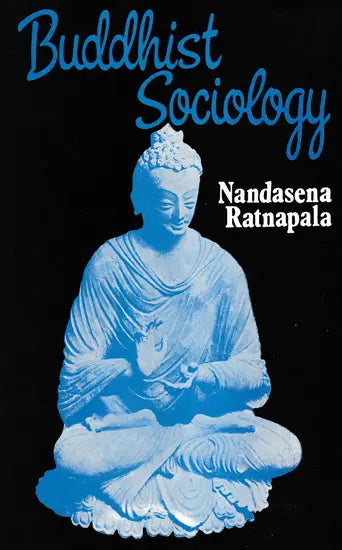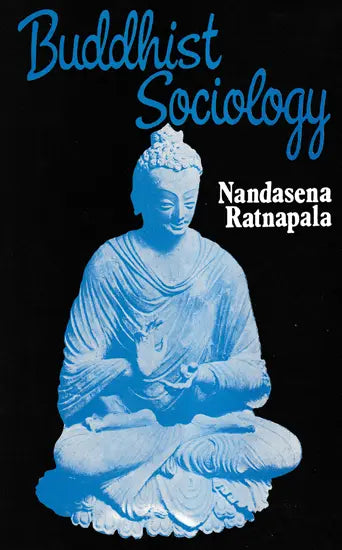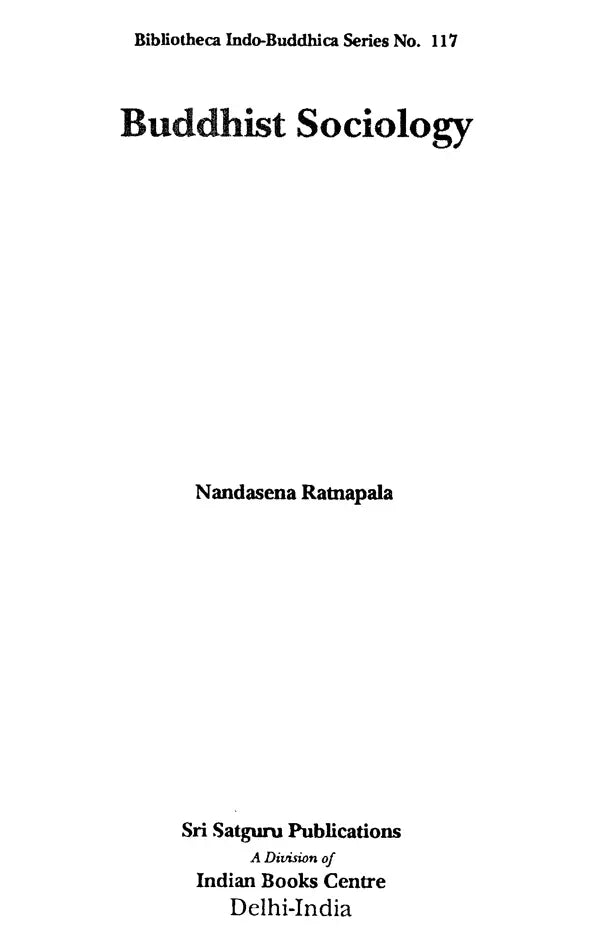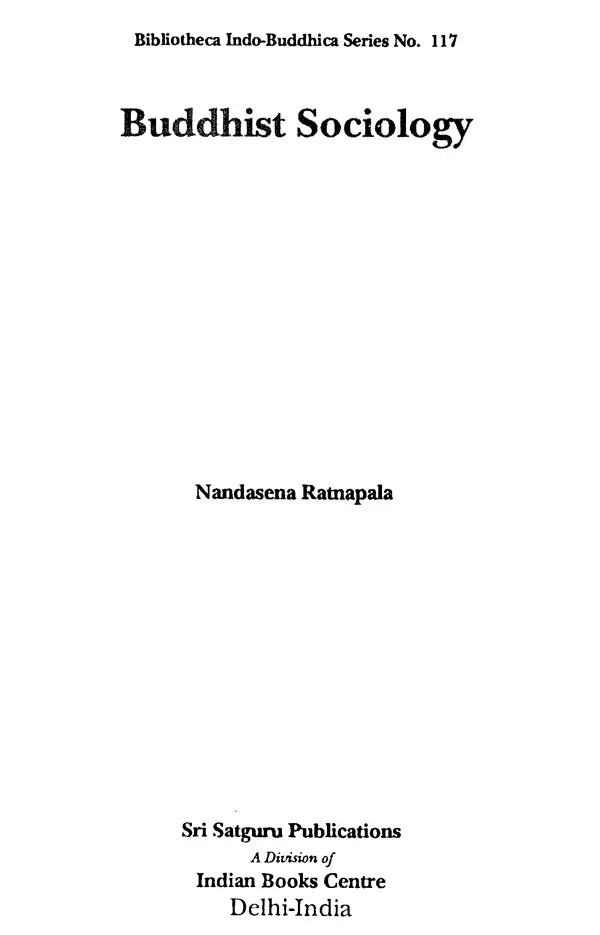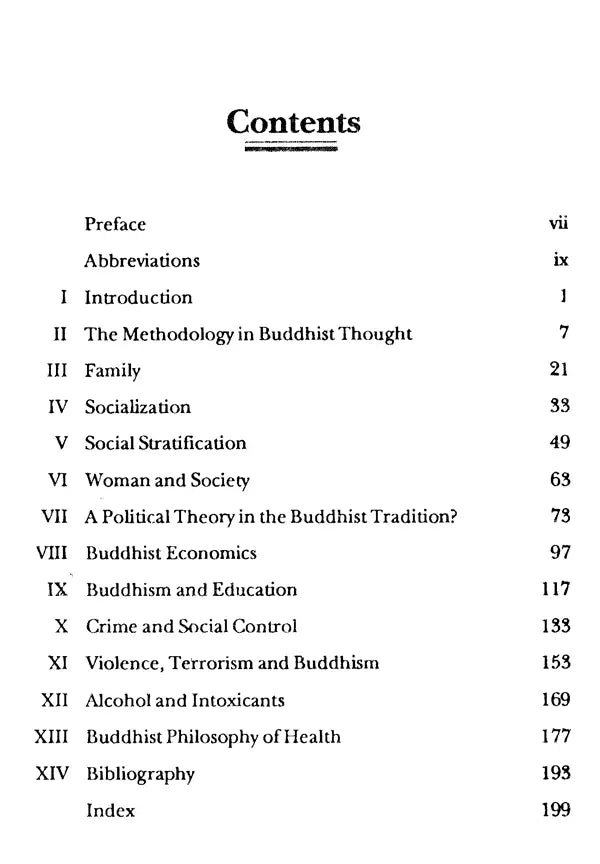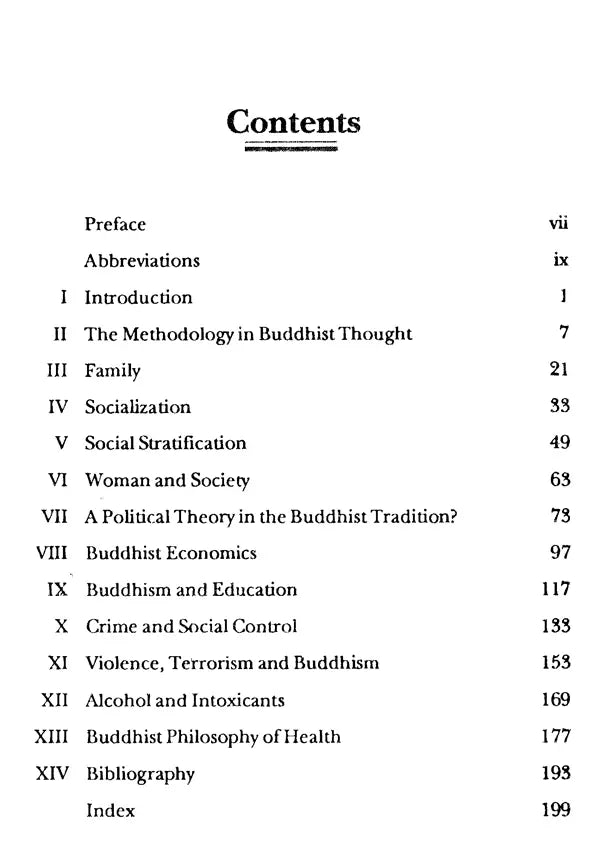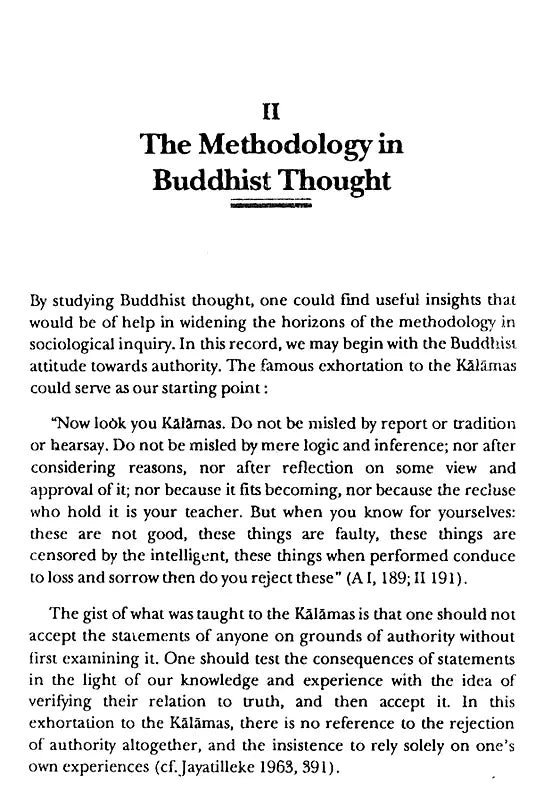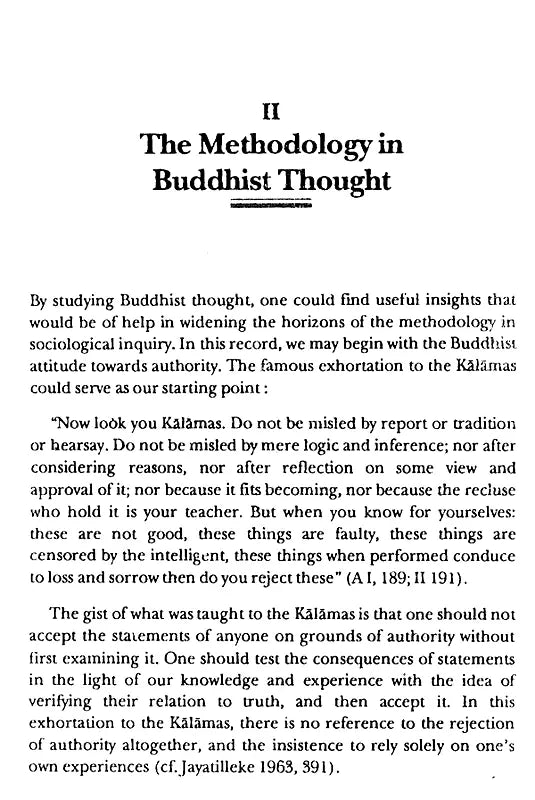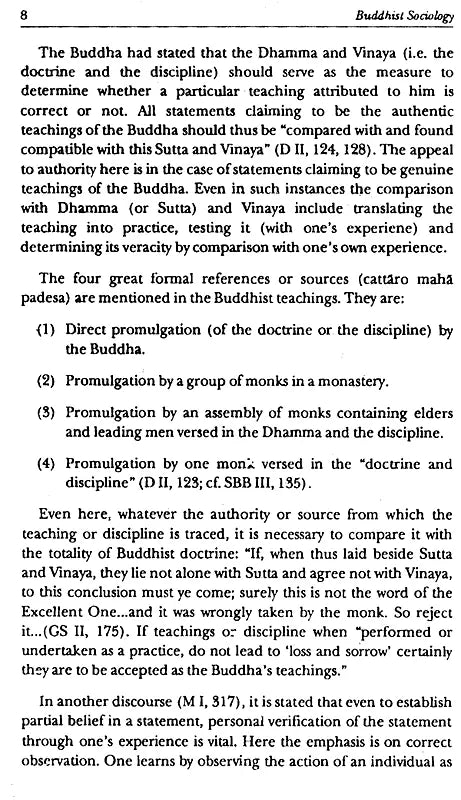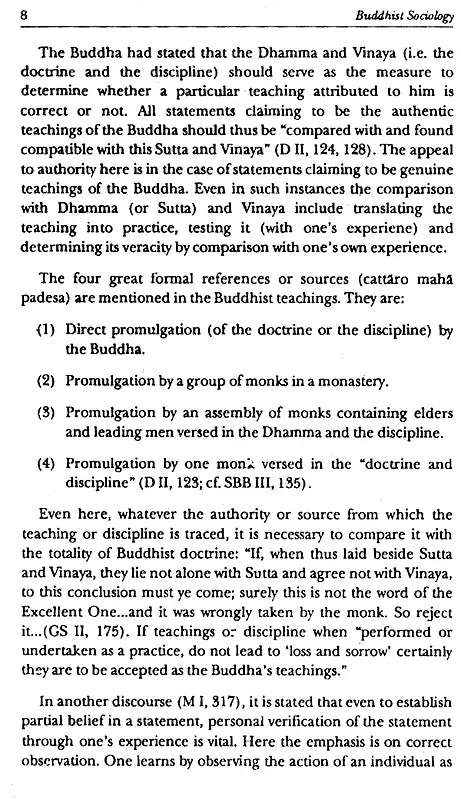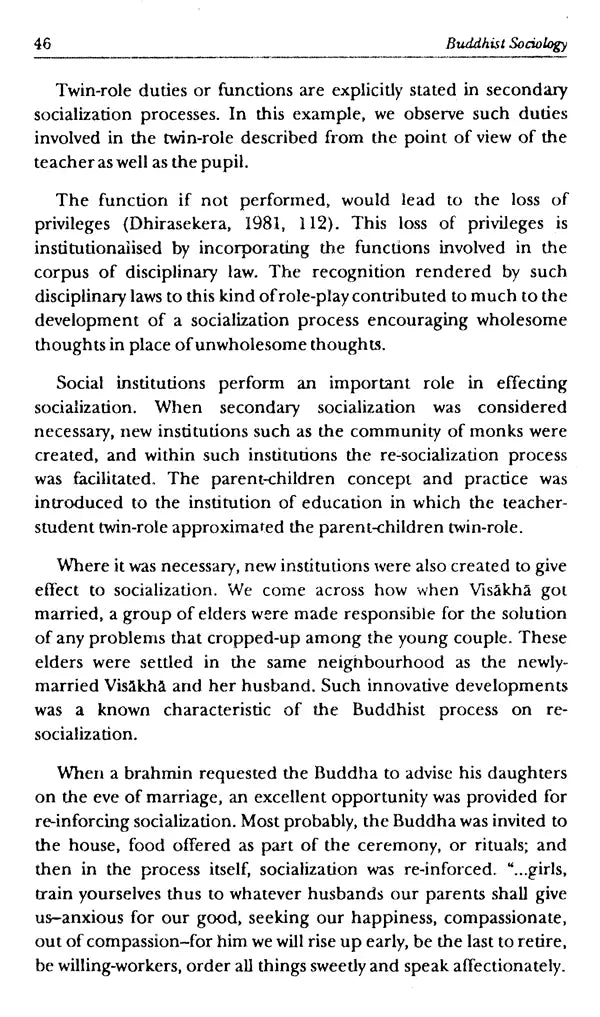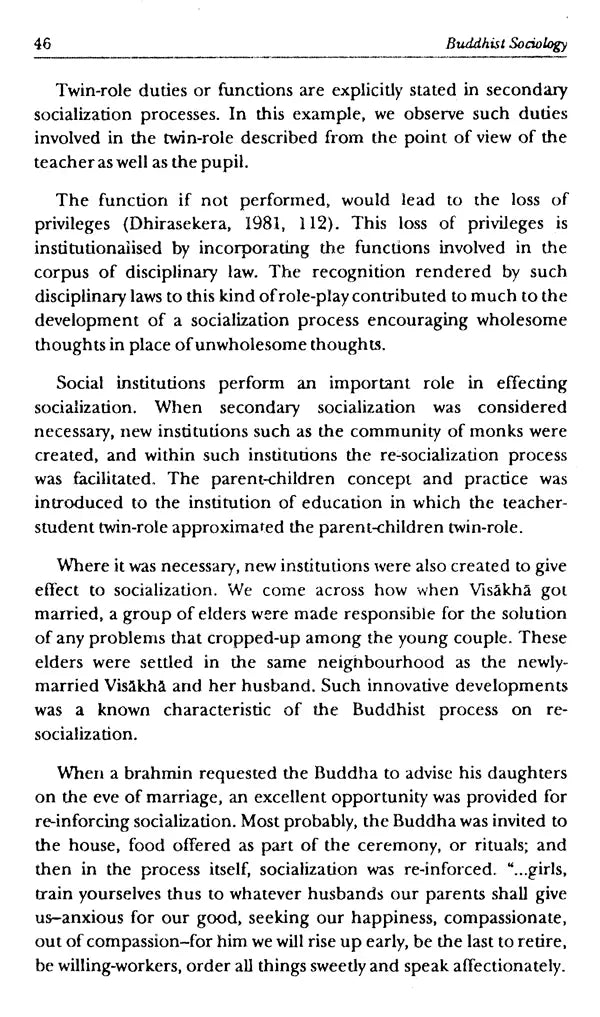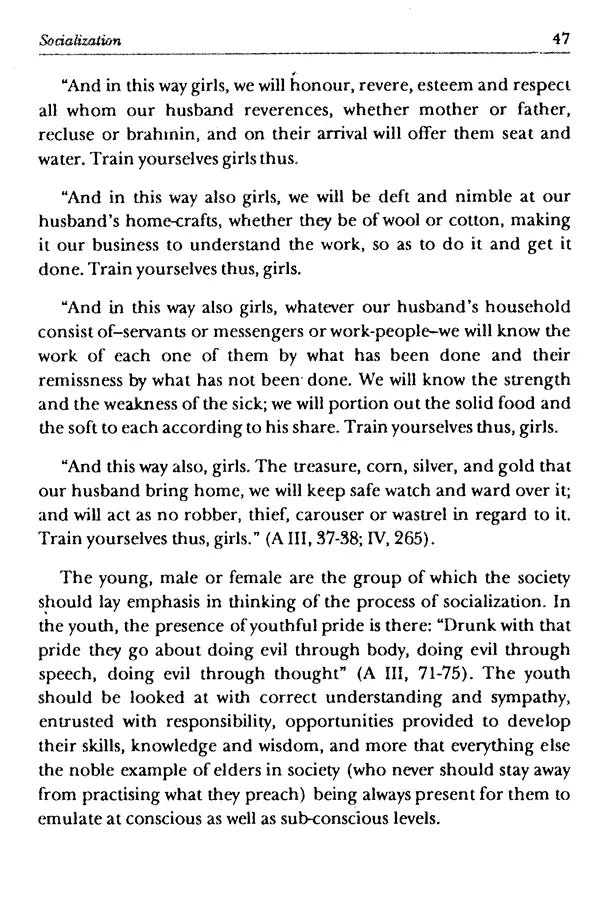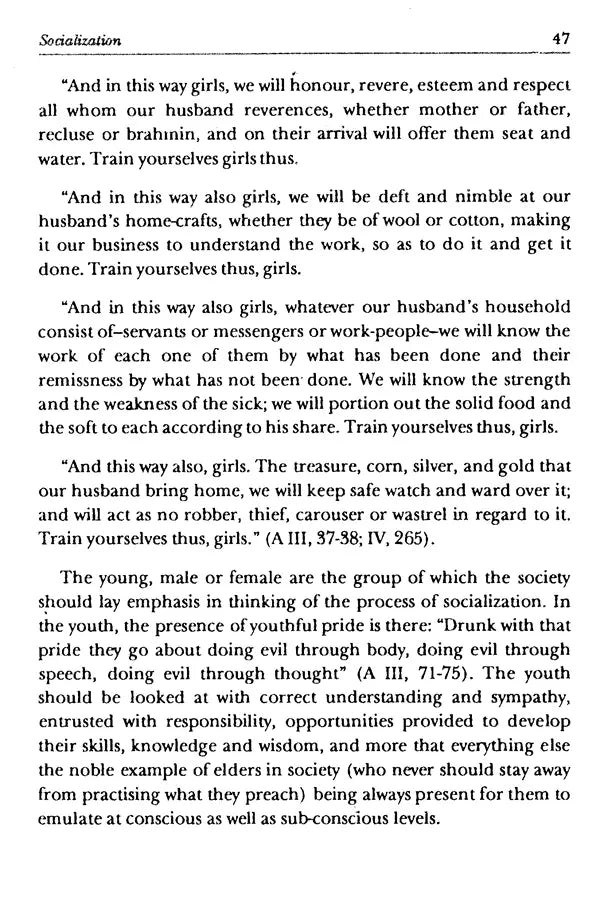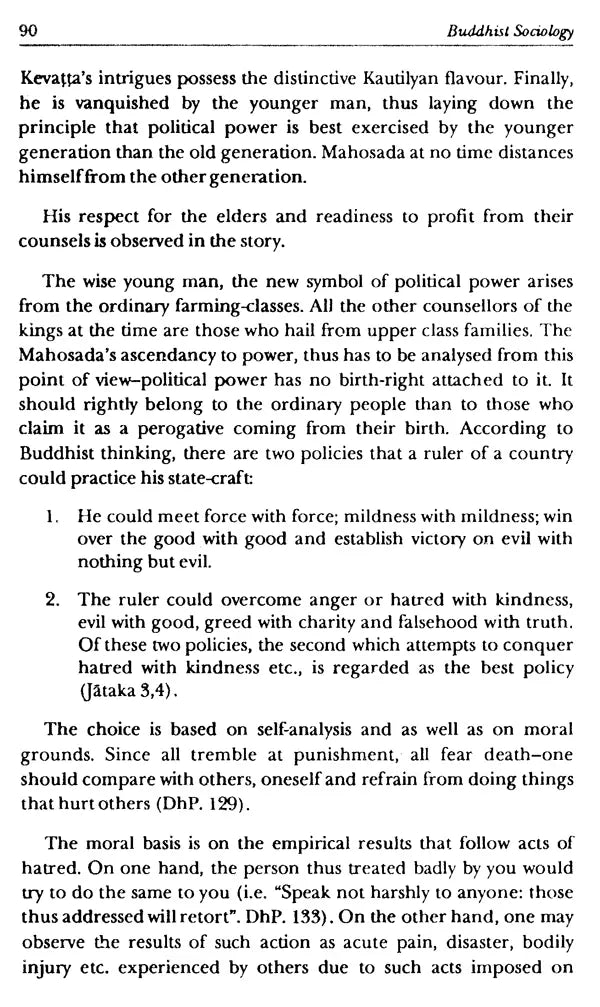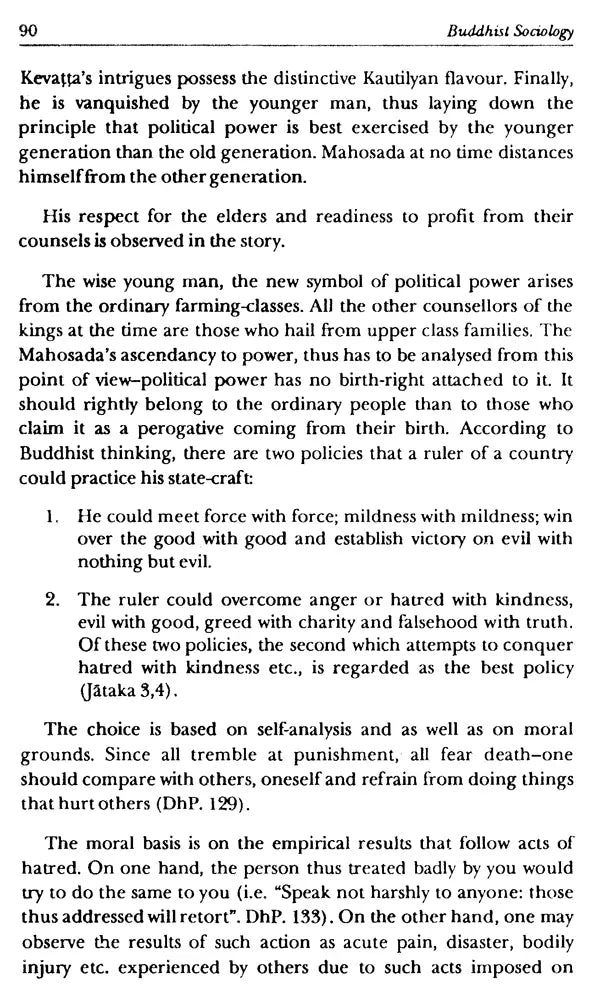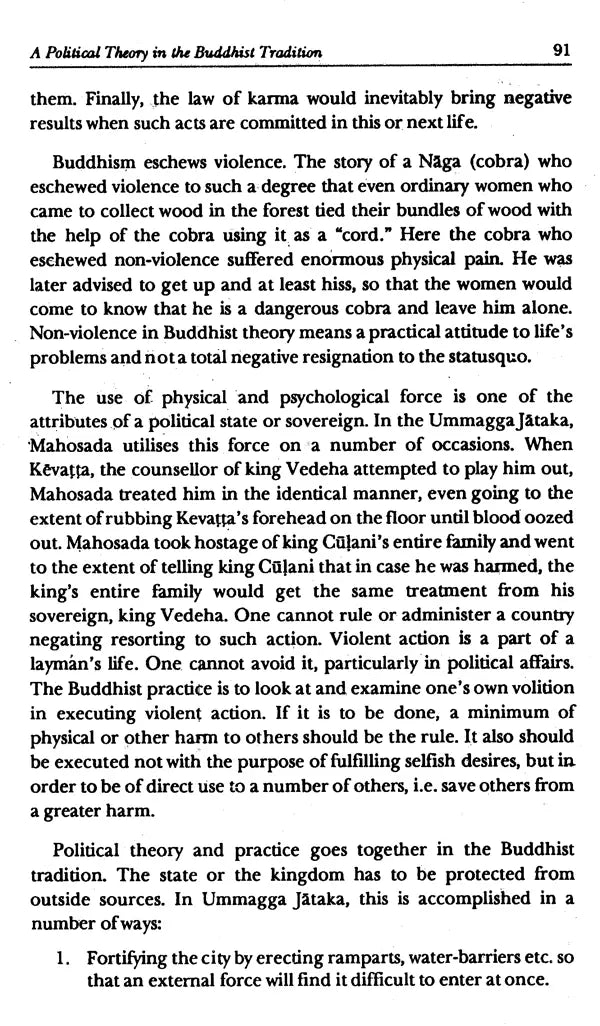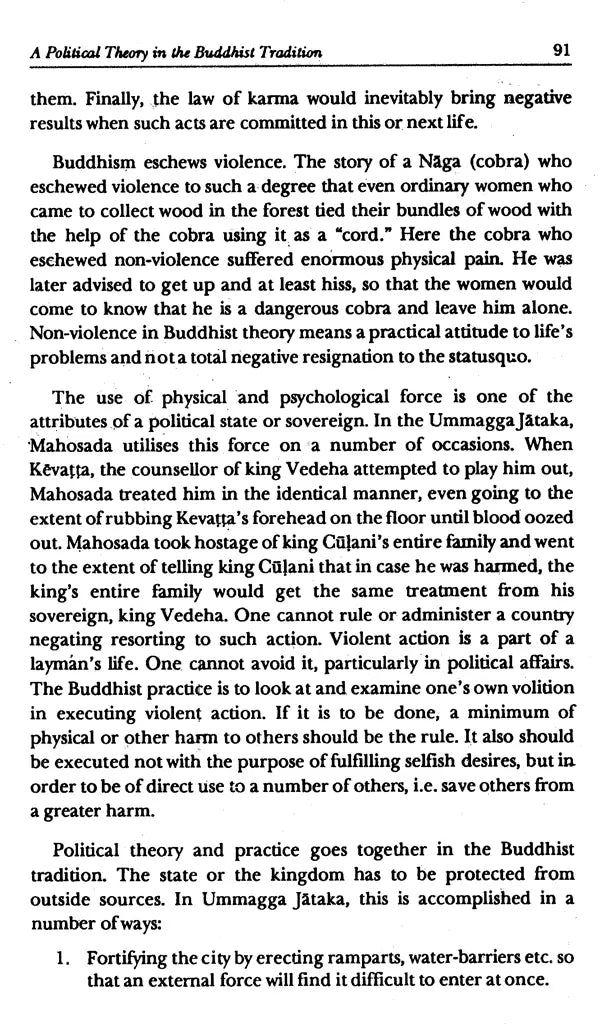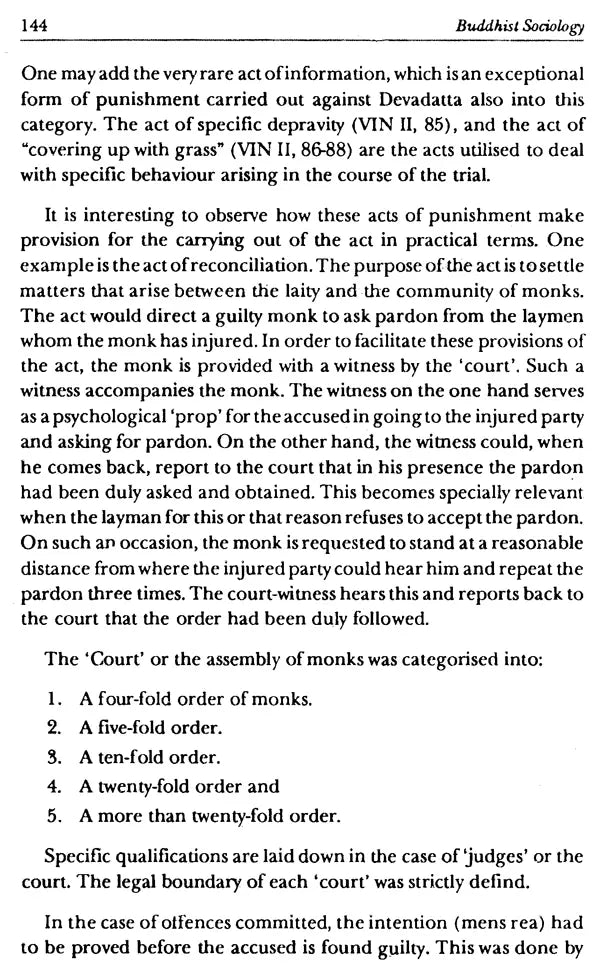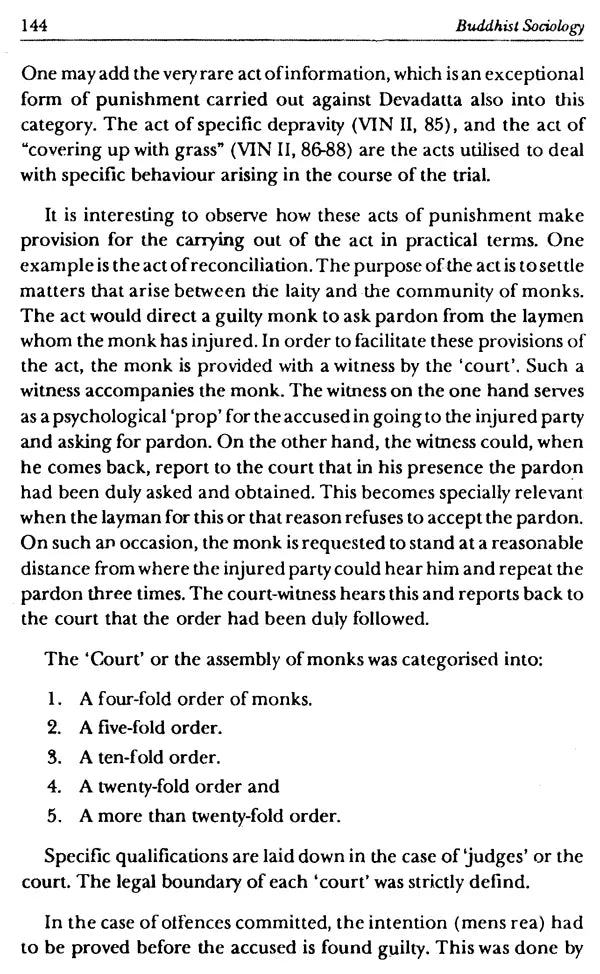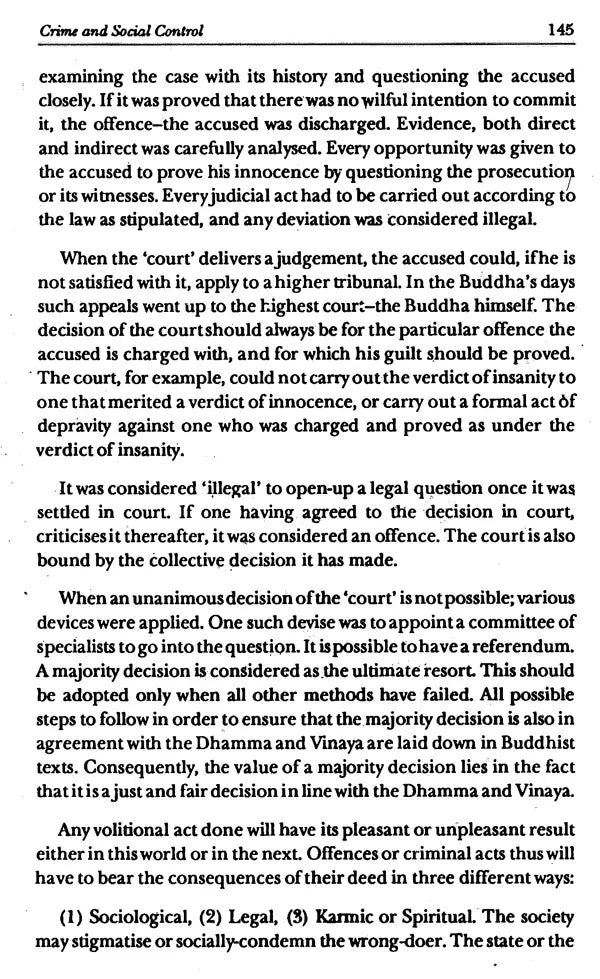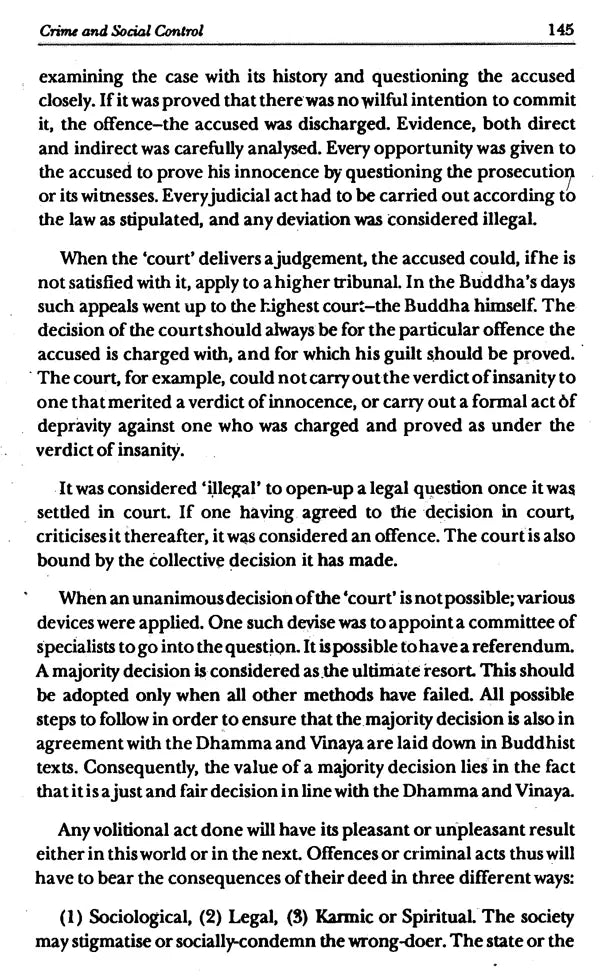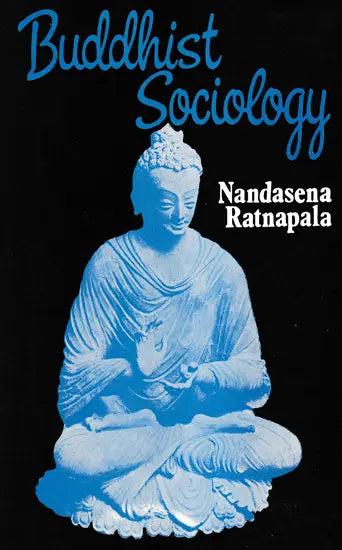Buddhist Sociology (Bibliotheca Indo-Buddhica Series No 117)
Buddhist Sociology (Bibliotheca Indo-Buddhica Series No 117) is backordered and will ship as soon as it is back in stock.
Couldn't load pickup availability
Genuine Products Guarantee
Genuine Products Guarantee
We guarantee 100% genuine products, and if proven otherwise, we will compensate you with 10 times the product's cost.
Delivery and Shipping
Delivery and Shipping
Products are generally ready for dispatch within 1 day and typically reach you in 3 to 5 days.
Book Title: Buddhist Sociology
-
Author: Nandasena Ratnapala
-
Language: English
-
Pages: 215
-
Cover: Hardcover
-
Dimensions: 23 cm x 15 cm
-
Weight: 405 gm
-
Edition: 1993
-
ISBN: 9788170303633
Book Description
About the Author:
Nandasena Ratnapala is an eminent scholar with an extensive academic background. Holding an M.A. from the University of Ceylon, a Doctorate from Goettingen, and a Ph.D. and D. Litt. from Sri Lanka, Ratnapala is a well-respected figure in the academic community. Currently serving as the Professor of Sociology and Anthropology at the University of Sri Jayewardenepura, Sri Lanka, Ratnapala has made significant contributions to the fields of sociology, anthropology, and Buddhist studies.
About the Book:
Buddhist Sociology is an innovative attempt to build a system of sociology based on the principles of early Buddhist thought. The author leverages the original Pali texts and the Buddhist tradition to construct this unique sociological framework. Through a sociological and anthropological lens, Ratnapala explores how Buddhist teachings address and can be applied to a variety of contemporary social issues.
In a world saturated with established sociological theories, this book offers a refreshing alternative to conventional thought, providing new ways of thinking and living that are rooted in Buddhist principles. By combining theory with real-world application, the book opens up a new avenue for understanding human society through the lens of Buddhism.
The topics covered in the book span a wide range of sociological aspects, including:
-
Family and Socialization
-
Social Institutions and Structures
-
Political and Economic Theories
-
Women's Role in Buddhist Society
-
Social Problems
-
Education, Health, and Crime
-
Punishment and Rehabilitation
Ratnapala's exploration of Buddhist sociology aims to bridge the gap between Buddhist philosophy and the practical realities of contemporary society. Through his work, he hopes to inspire other sociologists and anthropologists to delve deeper into this rich and largely untapped area of thought.
Preface Highlights:
The author expresses his gratitude for the support of Sri Naresh Gupta and other notable Buddhist scholars such as Professors G.P. Malalasekera, K.N. Jayatilleke, and O.H. de A. Wijesekera, among others, who shaped his academic journey. Ratnapala emphasizes the importance of understanding Buddhist teachings through the original Pali sources rather than relying on translations, as this enables a deeper and more accurate interpretation of the philosophy.
Ratnapala’s approach in combining sociological theory with Buddhist philosophy offers a novel perspective that has not been fully explored by previous scholars. While early sociologists such as Max Weber briefly touched on Buddhist thought, Ratnapala believes that a more thorough examination of Buddhist sociology can lead to insights relevant to solving modern social problems.
He expresses hope that this book will serve as an inspiration for other social scientists to explore Buddhist thought further and derive useful insights that can address the complexities of the modern world.
Key Themes:
-
Buddhist Social Theory:
Ratnapala offers a sociological framework based on Buddhist thought, utilizing original Pali sources to develop a comprehensive analysis of social institutions, structures, and relationships. -
Reinterpreting Buddhist Teachings:
The book moves beyond traditional views of Buddhism as purely a religion and instead offers a sociological reinterpretation that addresses modern societal issues such as family dynamics, education, health, and crime. -
Alternative Approaches to Social Issues:
Buddhist teachings emphasize concepts such as compassion, non-violence, and interconnectedness, which offer alternative solutions to contemporary social problems like poverty, inequality, and justice. -
Buddhism and Social Change:
Ratnapala looks at how Buddhist philosophy can serve as a guide for social reform, offering a holistic perspective on human life that fosters social harmony and personal well-being.
Why Read This Book?
-
Innovative Approach:
This book provides an alternative, sociologically-informed view of Buddhism that is not commonly found in other Buddhist studies, offering a new perspective on its application to modern society. -
Bridges Two Disciplines:
It connects Buddhism with sociology and anthropology, creating a unique academic cross-disciplinary study that offers valuable insights for social scientists, academics, and general readers alike. -
Practical Applications:
By examining topics like family structure, political and economic systems, and education, this book provides practical suggestions on how Buddhist teachings can address contemporary social issues. -
Thorough Scholarship:
Ratnapala’s use of original Pali sources ensures that the analysis is deeply rooted in authentic Buddhist philosophy, making the book a valuable contribution to the fields of Buddhist studies and sociology.
About the Author:
Nandasena Ratnapala is a distinguished scholar in sociology and anthropology, currently serving as a Professor at the University of Sri Jayewardenepura in Sri Lanka. With a deep academic foundation, including an M.A. in Ceylon, a Doctorate from Goettingen, and a Ph.D. from Sri Lanka, Ratnapala is widely recognized for his contributions to the field of Buddhist sociology. His work has garnered significant attention for its ability to connect Buddhist teachings with modern social issues, and he continues to inspire further exploration in this fertile area of thought.

